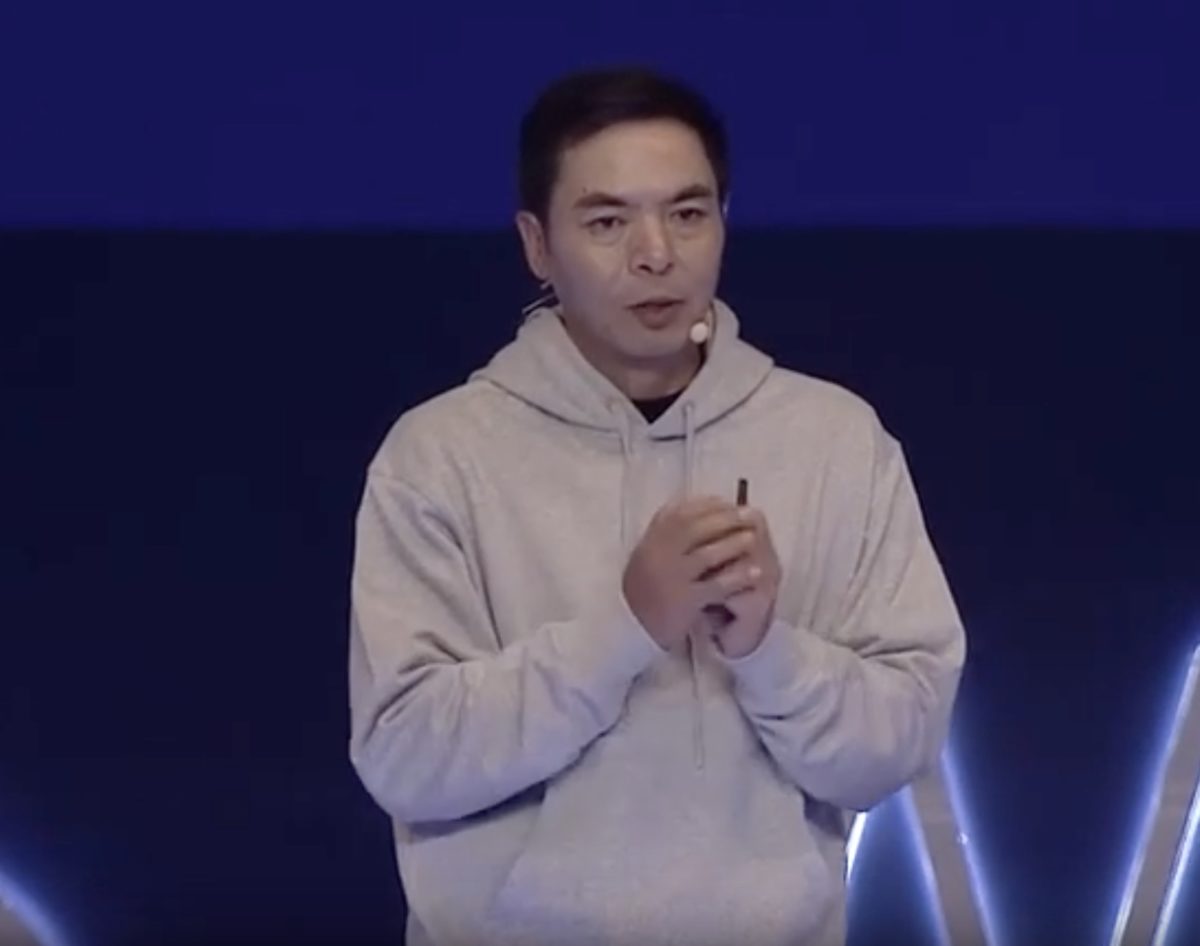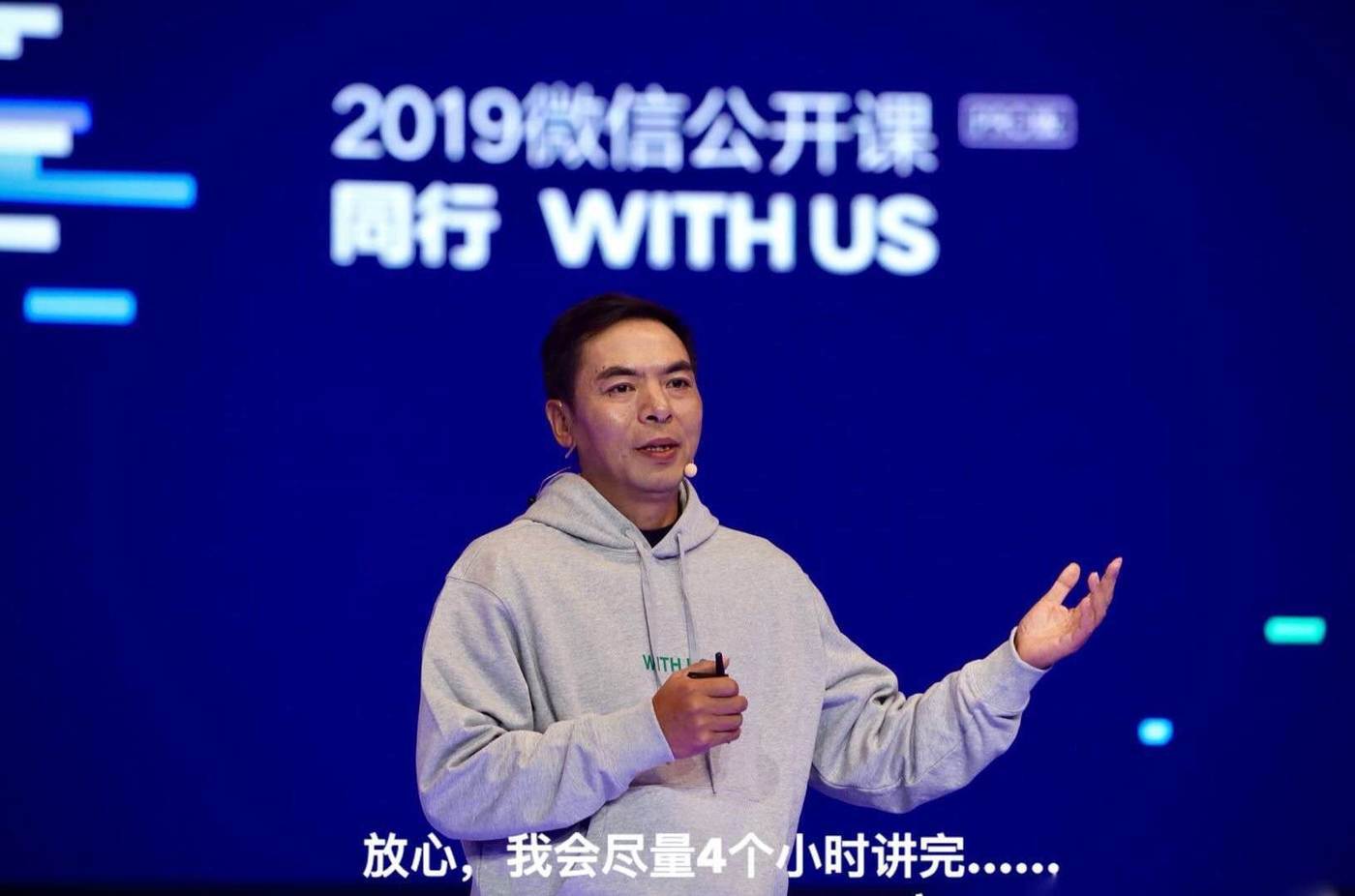China Business Corner: WeChat founder Allen Zhang and the Tencent conference

China Business Corner is a weekly window into Chinese-language coverage of business, technology, and the broader economy, brought to you by co-writers Huang Sizhuo and Jordan Schneider (who hosts the ChinaEconTalk podcast). Sign up here to get this column in your inbox every Thursday.
In the wake of Tencent’s recent annual conference (here on YouTube), it’s WeChat mastermind Allen Zhang week here at China Business Corner. First we’ll take a look at an extended profile of the man himself, whose product decisions about WeChat have more immediate impact on Chinese people’s daily lives than most political decisions (the article, incidentally, was censored after one day), then turn to his recent four-hour speech at the Tencent conference (best summarized in English by Matthew Brennan here). For more, we’d recommend the latest episode of the TechBuzz China podcast.
Ep. 34: WeChat’s 7.0 Update and Allen Zhang, the Man Behind the App

Allen Zhang’s background story: The really incredible ones all did it this way
张小龙成功背后的故事:真正厉害的人,都做到了这一点
Published January 14, 2019, banned the following day
Born in 1969, Allen hails from a peasant background. He is a bookworm, and from childhood felt very stifled.
Allen Zhang sold his first company, Foxmail (an email platform), to Tencent in 2000, bought a car, drove to Tibet, and fell off the map for the next five years. He then returned to Tencent, cleaned up QQ’s email system, and realized in 2010 that the rapid growth of messaging platform Kik presaged the future of communication. He convinced Tencent CEO Pony Ma to invest resources into developing what became WeChat.
Yet even this year, at a college reunion, many of his classmates struggled to place him. Upon going through that experience, Zhang joked that “most of the founders across the world are driven by the despair they get when looking at the mirror. I am a social loser, so to everyone’s surprise, I made social software.”
As discussed last week, at first it was not clear whether WeChat would win out over Xiaomi’s chat app or TalkBox. Zhang attributes the turning point to remembering some lines from Sigmund Freud that he came across in college about sex being a driving force for human nature. So, he added the “People Nearby” and “Shake” features, both ways to start a conversation with a stranger — and that sparked massive growth. (Both features, incidentally, embody the spontaneity and fun that the third article in our roundup, by Zhang Yuan, argues has left the WeChat ecosystem.) The sound effect in the Shake feature was inspired by Allen’s days playing Counter-Strike, as he thought the sound of bullets reloading would make users feel cool.
WeChat’s landing screen, the article surmises, represents Zhang’s loneliness.
Other anecdotes include:
- Allen scoring an absurd 6,800 on Tencent’s “Jump” game that launched its mini-program push.
- Having product teams stop everything and listen to rock ‘n’ roll whenever encountering roadblocks.
- Insisting that product managers should be “literary and artistic youth” (文艺青年 wényì qīngnián), not just “logic driven.”
- Never going to meetings (including once hiding from a provincial governor) and blowing off Pony Ma so often that the CEO ended up sending cars to pick him up at his house every time he needed him at work.
- Being an excellent amateur golfer (he recently won an international pro-am match).

What words in Allen Zhang’s four-hour speech did he not use?
张小龙的四小时演讲没有用哪些词?
Written by Cai Tong 采铜, self-published on “Cai Tong’s Entrepreneurial Thought World” 采铜的创想世界
January 10, 2019
Buzzwords plague speeches by senior leaders in China. Every time Xi Jinping gives a big speech, analysts write word-cloud analysis pieces looking at how the frequency of “reform” over “opening” gives insight into his policy priorities. Many Chinese tech CEOs also take their buzzword cues from Silicon Valley, abstracting out what they have to say into insufferable nonsense.
Yet in Allen Zhang’s four-hour speech at Tencent’s annual conference last week, he kept his words simple.
Words and phrases like “first-order logic, model, traffic flow, from a macro sense, tactics, strategy, theory, philosophy” didn’t get one mention. Instead, he said “user” and “friends” over a hundred times, and repeated words like “slowly advance” and “patience.” He is also not afraid to admit mistakes, declaring that “we haven’t done well enough” three times.

As WeChat has lost its “original driving force,” can Allen Zhang find a new “engine”?
当微信失去“原动力”,张小龙能找到新的“发动机”吗?
By Zhang Yuan 张远, TMTPost
January 12, 2019
This author has a much more negative take on Zhang’s recent moves. He decries Zhang’s speech as little more than a “reality distortion field” that doesn’t do much to address WeChat’s fundamental problems.
So what are they? WeChat, currently with a billion users, has largely tapped out its growth potential and currently suffers from “not enough kinetic energy to power further social expansion,” and not “too many friends, but too few.”
WeChat Moments (the equivalent of Facebook’s News Feed) strayed because it has become too much of a place for establishing an online persona. This LinkedIn (or Instagram) feel of Moments (as opposed to Snapchat) is due to the fact that one’s WeChat friends include not just family and friends, but also colleagues and bosses. So. content posted on Moments becomes “lowest-common denominator,” made to make one look good and not rock the boat. This explains the lower engagement rates, particularly among young people, who aren’t yet quite as boring or career-focused as their elders.
WeChat is a “one-avatar only” social network, and has, for a long time now, not fulfilled young people’s desires to express themselves in different ways. Of course, this doesn’t mean they’re going to give up WeChat anytime soon, but as far as they’re concerned, WeChat will atrophy into some communications instrument like a telephone, an instant messenger, fulfilling nothing more than the role of a tool to connect society. However, realizing your sense of identity and discovering kindred spirits won’t be something WeChat has to offer.
The author is also bearish about the “Top Stories” feature we wrote about last week. Around 80% of content read on WeChat users comes across through friend recommendations, while 20% is from official accounts of companies, media outlets, or individual journalists that users have opted into following. However, relying on your friends and prior subscriptions alone to push content comes with drawbacks. “Shouldn’t social platforms help users discover the wider world out there? Why must we ‘borrow our friends’ eyes to see the world from a different point of view?’ For gathering interesting content, social recommendations are obviously less efficient than algorithms.”









